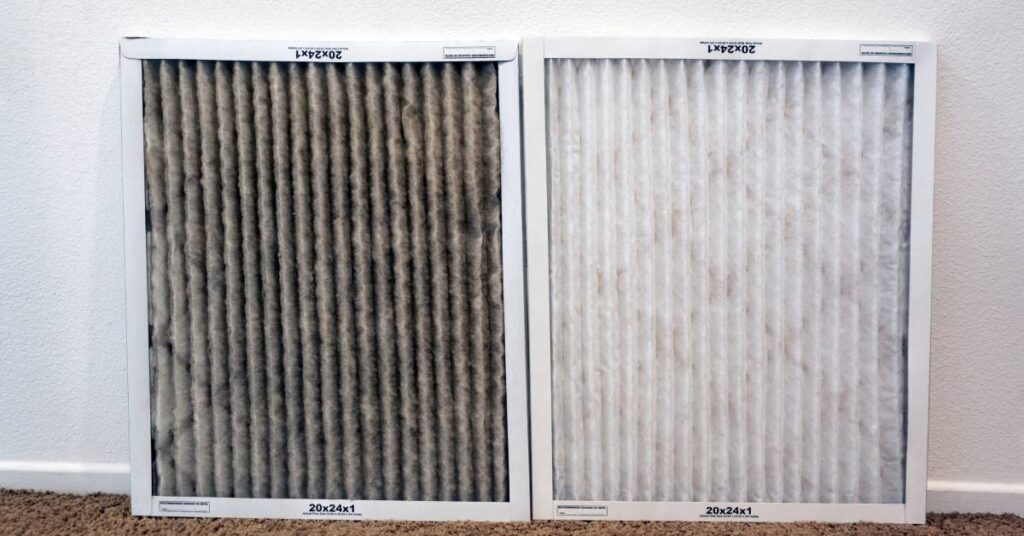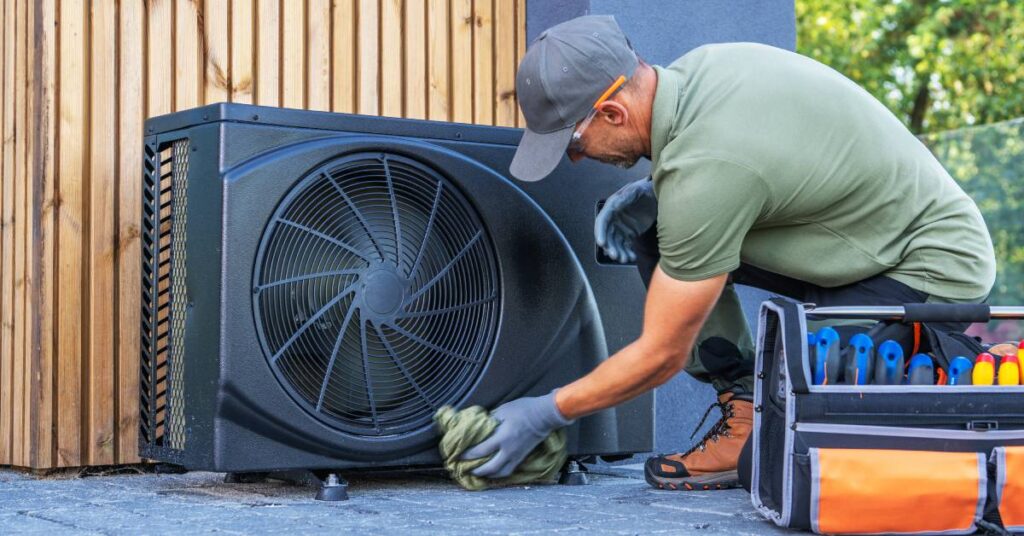Your HVAC system works tirelessly to maintain comfortable temperatures throughout your home, and taking care of it helps it continue doing its job. While none of us want to intentionally damage this system, some of our habits may inadvertently do so. Replacing the filter at the wrong time, attempting DIY repairs, and neglecting professional help are just a few examples of the many things that can cause serious harm to an HVAC system.
Ahead, explore in full how you may be doing damage to your HVAC system so you can fully protect your investment.
Ignoring Outdoor Unit Cleanliness
The outdoor condenser unit requires unrestricted airflow to effectively release heat from your home’s interior, making the cleanliness of the surrounding area essential for proper operation. Leaves, grass clippings, dirt, and other debris can accumulate around the unit, blocking air intake and reducing heat transfer efficiency. This restriction forces your system to run longer cycles to achieve desired temperatures, increasing energy costs and component wear.
When you take care of your landscaping, remove fallen leaves, trim back overgrown vegetation, and double-check that the unit sits level on a stable surface. Additionally, conduct a quick inspection of your unit after heavy storms to verify that no debris has blown in. If it has, clear it out.
Closing Too Many Air Vents
Many of us have considered closing vents in unused rooms, such as a spare bedroom. After all, this seems like the perfect way to redirect air so that it only flows through the open vents in the rooms you use. The problem is that closing multiple vents disrupts the natural balance of your duct system, forcing it to work against increased pressure and reducing overall efficiency. The increased pressure can cause ductwork to develop leaks, allowing conditioned air to escape into unconditioned areas, such as attics or crawl spaces.
Instead of closing vents to control room temperatures, consider adjusting your thermostat settings or installing zoned control systems for more precise temperature management. You can also purchase a mini split for rooms you frequently use to have complete control over the temperature settings.
Not Knowing When To Replace Filters

Your HVAC system’s filter is one of the most crucial parts of your system’s smooth and efficient operation. However, many homeowners are misinformed about how often they should replace their filter to keep the machine working properly.
While some professionals may provide a strict filter replacement timeline, such as every three months, this can vary depending on your specific system and usage. If you live in a large household or have pets, for instance, you may need to replace the filter more frequently. However, if you live alone, then changing the filter too often can be wasteful.
While it may seem like a brand-new air filter should do a better job of cleaning your air, the truth is that replacing the filter too often can create problems. Manufacturers design air filters to capture contaminants and particles from the air, but they also need time to collect the particles to become more effective. If you replace your filter too early, it may not have enough time to collect and trap these unwanted particles, resulting in a less efficient filtration process.
However, if you wait too long to replace your air filter, it can also have negative consequences. As the filter gets clogged with more particles, it becomes less effective at capturing new contaminants. Your HVAC system will therefore have to work harder and use more energy to do its job, which puts more wear on its internal components. Also, unwanted contaminants can circulate more freely in your home, potentially causing health issues for you and your family.
Thermostat Mismanagement
Knowing how to set your thermostat based on the outside temperature also makes a major difference in HVAC efficiency. For example, on a scorching day, the first thing most of us think to do is set the A/C as low as possible. The problem with this is that it forces the HVAC system to work even harder, which could cause it to freeze up and quit working.
To avoid this scenario, set your thermostat within five degrees of the outside temperature. This temp will help your HVAC system maintain a steady and comfortable environment without overexertion.
Attempting DIY Repairs
Another thing you may be doing that damages your HVAC is attempting complex fixes yourself. While DIY projects have increased in popularity in recent years, your HVAC system should never be on your latest DIY to-do list. These appliances contain complex electrical, mechanical, and refrigerant components that require specialized knowledge and tools for safe repair.
In addition to risking damage to the system, attempting repairs without proper training can result in safety hazards, injury risks, and voiding the manufacturer’s warranty. Electrical work on HVAC systems can cause shock, fire, and carbon monoxide exposure if performed incorrectly.
Overlooking Warning Signs
If your HVAC system starts making strange noises or doesn’t work the way it normally would, some of us may want to ignore it in the hopes that it will go away. However, wishing the issue away won’t work, and it can cause the problem to worsen if you continue using the HVAC unit despite the damage.
Likewise, unusual odors from your HVAC system can indicate serious safety hazards or component failures requiring immediate professional attention. Burning smells may suggest electrical problems, while musty odors often indicate mold growth within the system. Addressing warning signs promptly prevents minor issues from becoming major problems that threaten your home’s comfort and safety.
Skipping Professional Maintenance

Regular professional maintenance keeps your HVAC system operating efficiently and increases the chances of catching problem areas before they become major issues. Many HVAC problems develop gradually and remain undetectable until professional inspection reveals them. However, a trained technician can spot wear patterns, clean components, and adjust settings that homeowners cannot safely or effectively address themselves.
During HVAC service, a professional will perform tasks such as coil cleaning, refrigerant level checks, electrical connection inspections, and motor lubrication, all of which require specialized knowledge and equipment. These services help your system operate at peak efficiency while meeting manufacturer requirements for warranty coverage.
Scheduling maintenance before peak heating and cooling seasons helps your system perform reliably when you need it most. You can avoid emergency repairs during extreme weather when service costs are highest and technician availability becomes limited.
Contact Style Crest Today
Style Crest offers installation and repair services to keep your HVAC system working properly. Our certified technicians have the training and expertise to work on your unit regardless of make and model. Contact us today to schedule routine maintenance or to address concerns with your HVAC system.